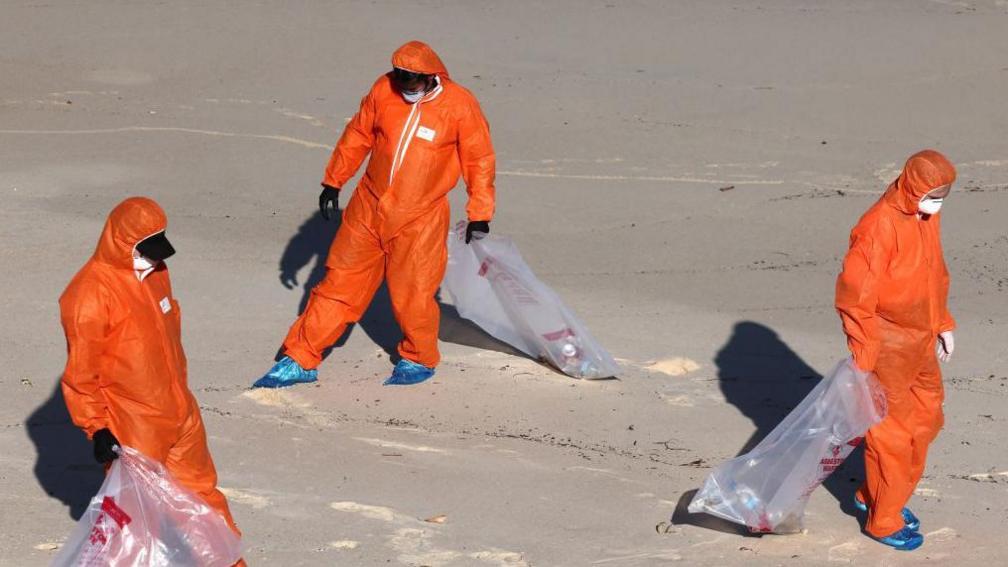Sydney reopens beaches after tar ball mystery

The clean-up on Coogee Beach on Thursday
- Published
Beaches in the Australian city of Sydney have reopened for swimmers after being closed earlier this week when thousands of mysterious black tar-like balls washed ashore, prompting health concerns.
Officials say tests found the balls to be formed from chemicals similar to those in cosmetics and cleaning products but it is still unclear where they came from.
Eight beaches including Bondi - the city's most famous - were closed and a massive clean-up ordered amid fears the black deposits were toxic.
New South Wales's Environment Minister, Penny Sharpe, said investigations were continuing to establish the source of the pollution and who was responsible.
The state's maritime authority said the balls were not highly toxic to humans but should not be touched or picked up.
"Based on advice from the Environment Protection Authority, we can now confirm the balls are made up of fatty acids, chemicals consistent with those found in cleaning and cosmetic products, mixed with some fuel oil," said New South Wales Maritime Executive Director Mark Hutchings.
Some of the tar-like balls on Coogee Beach
The New South Wales Environment Protection Authority (EPA) said laboratory testing was continuing, to try to determine where the balls came from, Reuters news agency reports.
"It is still somewhat of a mystery and may take a few more days to determine origin," said EPA Executive Director Stephen Beaman.
The tar balls were "not harmful when on the ground but should not be touched or picked up", Mr Hutchings was .
"If you see these balls, report them to a lifeguard. If you or your family accidentally touches one, wash your hands with soap and water or baby oil."
Related topics
- Published16 February 2022